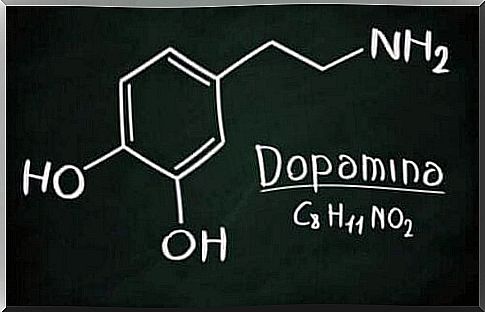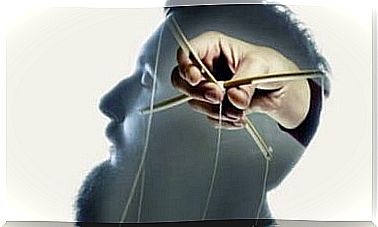Should We Call Addiction Attachment Instead?

One hundred years ago, drugs were banned for the first time. In this century of the “war on drugs,” countless professors and governors have told people stories of addiction. They have become so ingrained in our minds that we believe they are true. Should we really call addiction affiliation instead?
The American Chemical Society has changed the rules of the game. They say that addiction to drugs, alcohol and other harmful substances is not the result of a “personal mistake”. In fact, it is the natural result of brain chemistry, and is similar to attachment.
Several experiments have shown that what leads to addiction is a need for dopamine. This is the neurotransmitter involved in our “degree of happiness” (Newcombe, 2016).
Drugs pass through a part of the brain called the area tegmentalis ventralis . This part of the brain is better known as the “reward center”. This is where the brain processes everything you do that makes you feel good. It is also where the brain produces dopamine, the chemical that gives you pleasure, according to The Washington Post.
For example, some people may become addicted to dopamine because they have not found anything else to depend on. In other words, being sober is not the opposite of being addicted. It’s human connection.

The key is to understand why we act the way we do
Substances do not necessarily make you feel good about yourself – it is actually the signals they send to your brain and body that do this. Some types of drugs can increase your dopamine levels to 10 times above normal.
What your brain does to adapt to this dopamine overload is to reduce the number of receptors it has for the specific chemical. Thus, one who is addicted will end up needing more and more of an intoxicant to feel good.
The British author Johann Hari has also collected some evidence about “people living in a happy environment”. These people basically get the right amounts of dopamine in their daily lives. According to his evidence, they are less likely to develop drug addiction (Swanson, 2015).
The opposite of addiction is not being sober, it is human connection and attachment
Hari also quoted Bruce Alexander, a psychology professor in Vancouver, Canada. He says that ” Addiction is an adaptation to your surroundings and a kind of cage” (Alexander, 2010).
He discovered something very strange in one of his experiments. The rats he studied drinking water with cocaine until the dead were always alone in their cages. They had nothing to do but use drugs. Thus, he wondered what would happen if he tried to change their environment.
The Rat Park experiment and addiction
This is what led Alexander to create the Rat Park experiment, which was basically a fun cage where the rats had access to colorful balls, high quality food, tunnels to run around in, and many other rats to interact with. It was everything a rat could ever dream of, and more.
What Alexander did was place two water bottles in the cage that the rats could drink from. One was mixed with cocaine and the other was not. All the rats started drinking from both bottles.
He noticed that all the rats that had a good life in the cage did not like the water with drugs. In general, they avoided drinking it and drank a quarter less of it than the isolated rats. Not a single one of the rats in the large cage died. The lonely, unhappy rats, on the other hand, became addicted.
The happy rats did not develop an addiction to the drugs, precisely because they had healthier attachments to their surroundings. However, the unfortunate rats had to create a connection to the drug in order to find positive stimuli.
The same experiment on humans
At first Alexander thought this was specific to rats. Then, however, he found out that a similar experiment was done on humans: the Vietnam War.
Time magazine said that it was “as common to use heroin as it was to chew gum” among American soldiers. According to the Archives of General Psychiatry , about 20% of American soldiers developed a heroin addiction while there.

The same study found that almost 95% of all dependent soldiers were able to quit. Some began rehabilitation programs. They went from a terrible cage (Vietnam) to nice, warm places (their homes) and no longer wanted to use drugs.
Alexander argued that this discovery was a great achievement. He said it went against the conservative idea that addiction is selfish and the liberal idea that addiction is basically a chemical kidnapping of your brain.
He thought it was an adaptation instead. Maybe the problem is not the addiction itself, but the lack of connection and the need to cling to something that might replace it.









